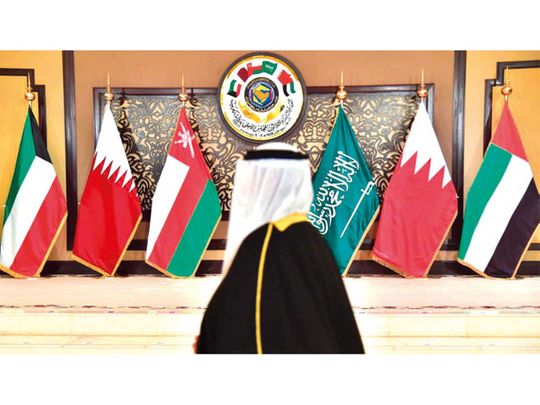
Cairo: Kuwait continues efforts to end the Gulf rift and sees "bigger hopes than before" to resolve the years-long row, Kuwaiti Prime Minister Shaikh Sabah Al Khaled said Wednesday.
On June 5 2017, Saudi Arabia, the UAE, Bahrain and Egypt broke off diplomatic and transportation links with Qatar over its support for extremist groups.
The boycott has taken a toll on the tiny emirate's economy. It has also cast a shadow over the six-nation Gulf Cooperation Council (GCC) that comprises Saudi Arabia, the UAE, Bahrain, Qatar, Kuwait and Oman.
Over the past three years, Kuwait has sought to defuse the crisis without success so far. Kuwait has recently renewed its efforts.
"Regrettably, we are now in the fourth year of the Gulf disagreement," the Kuwaiti premier said at a meeting with editors of local newspapers.
"But attempts are still continuing and hopes are bigger than before. We used to move one step ahead and return two steps backward. But now if we move forward a step, it is followed by another step," he added without details.
"I am sure that all Gulf states see the GCC march important for them, for the region and the world. This is what we should build on it and use it as a common ground for moving ahead to bridge the gap," he said.
Last month, Kuwaiti Foreign Minister Shaikh Ahmad Nasser Al Sabah visited Saudi Arabia where he conveyed messages from Emir Sabah Al Ahmad Al Jaber to the Saudi King Salman bin Abdul Aziz and Crown Prince Mohammad Bin Salman. Although the content of the messages was not disclosed, it is believed to have dealt with the Gulf crisis.
Earlier in May, the Kuwaiti minister delivered a message from Emir Sabah to the Qatari Emir Tamim Al Thani.
The Saudi-led bloc has repeatedly announced a raft of conditions for mending fences with Doha.
The demands include Qatar’s severance of links with militant and terror groups, scaling down ties with Iran and shutting down Al Jazeera TV, seen as a mouthpiece of the banned Muslim Brotherhood. Qatar has refused the conditions, saying they violate its sovereignty.








